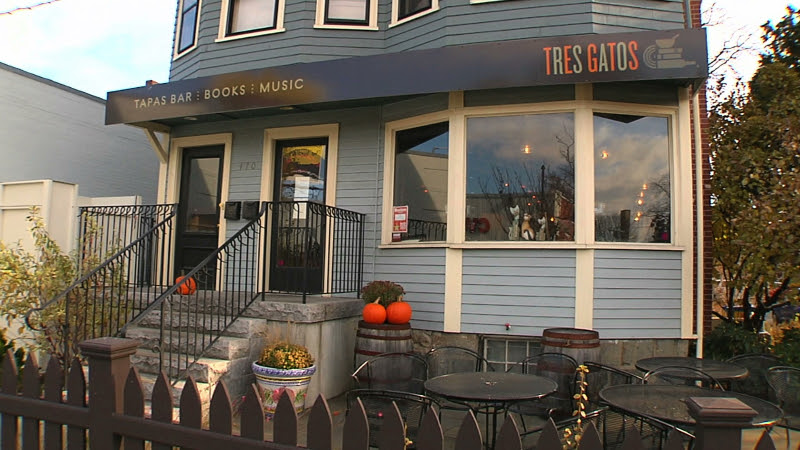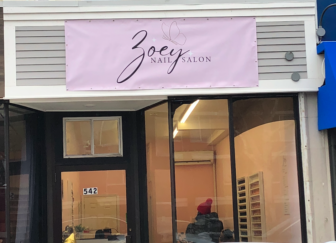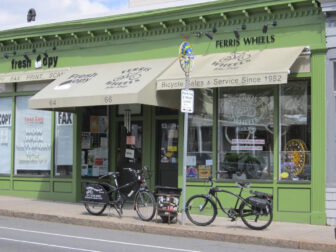If you’ve dined at Tres Gatos or Centre Street Cafe this week, you might have noticed an additional 3 percent charge on your bill. The team behind the popular Jamaica Plain restaurants (and the forthcoming taqueria Casa Verde) has begun adding a 3 percent “hospitality administrative fee” to diners’ checks.
The fee will be used for raises, benefits, and more sustainable work hours for the restaurants’ back-of-house kitchen staff, who, unlike servers, do not receive tips.
In addition to improving quality of life for their back-of -house staff, owners Keith Harmon, David Doyle, Maricely Perez-Alershope hope “to serve as test model from which other small restaurants can gain valuable insight,” according to their open letter to the community, which is reproduced below (and can be read in its entirety here):
An Open Letter to the Restaurant Community: Why we are changing our business model, and why you will see an administrative fee on your bill.
We have decided to change the business model of Tres Gatos and Centre Street Cafe in Jamaica Plain in order to be able to pay our back of house (BOH) kitchen staff better in relation to the rest of our team. The disparity between front of house (FOH) and BOH compensation has been growing for many years. What was a gap 25 years ago has become an abyss, and it will only continue to widen. We think that within 5 years the majority of restaurants will have adopted some measure to address this critical issue. We are choosing to do so now for the benefit of our BOH teams, and because we would like to be agents of change and share our results with other restaurants. We are writing this letter for three reasons:
1. To be completely transparent to all of our stakeholders (team, community, guests, vendors, investors/lenders) about what we are doing.
2. To explain why we are doing it and why it is so important to us and our industry. And,
3. To ask for support as we try a new approach.There are some well-known statistics regarding wage growth among tipped employees vs. non-tipped employees. In our restaurants, tipped/FOH team members make 2.2 to 2.6 times as much as non-tipped/BOH employees. The fundamental issue underlying this widening gap, as we have come to see it, is that tipped employees are tied to top-line revenue, whereas back of house employees are tied to bottom line results.
Every time we increase menu prices to cover inflation somewhere in the expense structure, we cover the expense but we widen the wage gap. While we’ve largely been spared the hiring crisis many restaurants have faced, we feel the wage problem can no longer be ignored. How can we as owners tolerate a scenario whereby half of our team’s compensation is about 60% lower than the other half’s? We’re tired of feeling like our kitchen staff are second class citizens. We’re tired of knowing that they would be financially better off bussing tables or working at a chain restaurant. We need to hitch (at least part of) their star to top line revenue if we want to correct the disparity.
The impasse we’ve reached presents us with a host of difficult choices. Do we live with the status quo and accept stagnant wages in the kitchen? Or, in an effort to pay our kitchen staff more, should we cut total hours and streamline how we operate: stop making our own pasta, bread, and pastry, and buy those things even though we know they’re better if we make them? Should we stop doing our own fish and animal butchery? Should we work with mega-vendors and stop supporting local agriculture? Should we give less to charity and support fewer local events and organizations? Or, finally, should we ask guests to pay more in order to directly benefit the kitchen?
Beginning December 1, 2015 we are making two substantial changes to how we charge at Tres Gatos and Centre Street Cafe: First, all group, prix fixe, and event dining will have a 15% service charge and a 7% hospitality administrative fee added to the bill. Second, all other diners will have a flat 3% hospitality administrative fee added to their bill, and guests may still tip as they see fit.
All of the charged hospitality administrative fees will be used for raises, benefits, and more sustainable work hours for our BOH team. We know many people will ask, “Why don’t you just raise your prices? This is your problem.” Our response is that it is our problem, and that in fact we are raising prices, albeit in a slightly different way that specifically aims to close the quality of life gap between front and back of house.
The FOH/BOH wage gap issue pervades the U.S. restaurant industry. Success and evolution in this industry is our life’s work, and we believe our restaurants – and small, independent restaurants in general – will not be sustainable for much longer without a correction. Quality restaurants cannot function, much less thrive, without quality chefs and cooks. We hope that making this small change will have a sufficiently large effect. Our goal is not only to improve the lives of our BOH employees, but to serve as a test model from which other small restaurants can gain valuable insight. We acknowledge that this is a risk, one that might not work, and if it doesn’t we’re willing to chart another course. But we need to take our best shot at fixing a problem that is growing increasingly difficult and intolerable, and we need your understanding and support.
For small restaurants that don’t want to sacrifice craft or integrity in order to serve the communities they love, we believe this is a fair, effective, and sustainable approach. We will open Casa Verde with this model as well. Our hope is that by making the compensation more equitable at each restaurant, our teams will be able to achieve more, not less, for many years to come. We thank you in advance for your understanding and support as we attempt to correct this core issue.
Thank you,
We Live to Serve,
Keith Harmon, David Doyle, Maricely Perez-Alers
(Owners of Tres Gatos, Centre Street Cafe and Casa Verde of Jamaica Plain.)
Following an initial Boston magazine report, the issue touched off a passionate discussion on Universal Hub, with Doyle responding to numerous comments, providing additional information on the owners’ business model and rationale for adding the fee.
Would you be more or less inclined to dine at these restaurants because of this 3 percent fee, or does it not make a difference to you?






